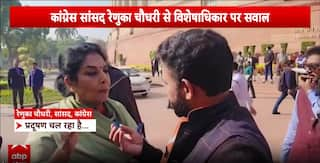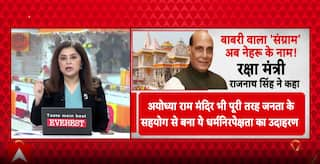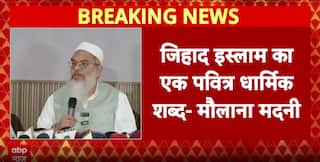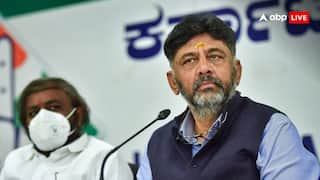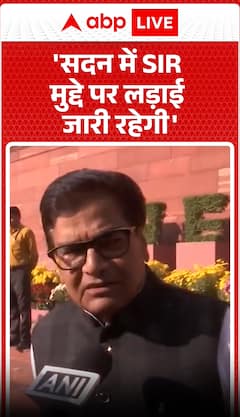UP Madrasa Act: Supreme Court Asks Why High Court Held Regulatory Statute 'Unconstitutional'
The top court while hearing the arguments questioned why the high court held the Act unconstitutional when it was broadly a regulatory statute.

CJI DY Chandrachud asked: "Why did the High Court hold it unconstitutional? The act is very clear, it prescribed the conditions of service, the making of regulations, etc and its broadly a regulatory statute."
CJI DY Chandrachud asked Guruswamy if the Madarsa Board gets any funds from the State government.
Guruswamy informed the court that the Board does not receive any funds from the government. She further told the court that the conflation of regulation with religious instructions is patently wrong as the board provides a general education.
"The board is not the authority which provides education, it is only a regulatory mechanism to ensure the quality...they may also have a vital interest in ensuring that young children get broad based education apart from religious instructions to lead a proper life." CJI remarked and further asked if the board has specified other branches of education. The CJI also questioned if the Madrasas can use any discretion in deciding what the students are taught.
Guruswamy told the court that education institutions also ensure that apart from religious instructions there are subjects like maths, physics, science etc and the board is ensuring that the discretion of Madrasa is removed.
CJI Chandrachud at this point said that the state govt also has a vital interest in ensuring that all children receiving primary and secondary education must get basic education to become worthy citizens
While showing the syllabus of madrasas and books prescribed, Guruswamy said that Sanskrit is also being taught in the madrasa.
CJI Chandrachud after hearing other counsels remarked that one thing is very clear that the State Act does not make the madrasa board a university, the conferment of degrees by the board will be in contravention of the UGC Act. He further noted that the Court has to see what degrees can be conferred by Madrasa in view of UGC Act.
Guruswamy informed the court that the violation does not exist, and the Madrasas are not conferring degrees.
Senior Advocate MR Shamshad submitted that the high court judgment is 70% based on secularism. Shamshad further argued that the High Court has gone on to interpret the term religious education to mean religious instructions.
CJI Chandrachud remaked that a law per se regulating an institution of a community does not ipso facto violate the principle of secularism. He also cited the example of Hindu Endowment Acts and said that it does not offend Secularism.










